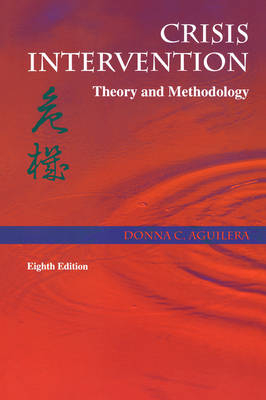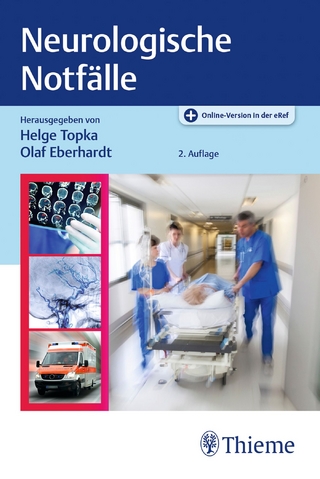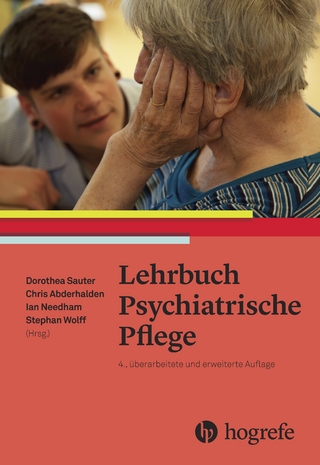
Crisis Intervention
Theory and Methodology
Seiten
1997
|
8th edition
Mosby (Verlag)
978-0-8151-2604-1 (ISBN)
Mosby (Verlag)
978-0-8151-2604-1 (ISBN)
- Titel ist leider vergriffen;
keine Neuauflage - Artikel merken
Suitable for clinicians from many disciplines, this title features topical format of case studies and paradigms in crisis resolution. It includes chapters on violence in society, infertility, substance abuse, and coverage of Acute Stress Disorder, a DSM-IV category.
Clinicians from many disciplines rely on this definitive reference for its consistent, topical format of case studies and paradigms in crisis resolution. This edition includes new chapters on violence in society, infertility, substance abuse, and coverageof Acute Stress Disorder, a new DSM-IV category. Expanded coverage is included on hot topics such as the recent earthquake in Los Angeles, the Oklahoma City bombing, crisis hotlines, and the latest crisis intervention modalities. A new epilogue outlines the author's vision of the future of crisis intervention. Crisis Intervention Paradigms are included at the end of chapters that can be filled out by the reader based on the case study. The completed paradigms can be found in the appendix. New appendices cover relevant legal and ethical terms, DSM-IV criteria for PTSD and ASD, infertility resources, and the completed paradigms.
* A comprehensive, current, and readable look at crisis intervention for nursing students, students in related disciplines, as well as professionals and volunteers throughout the field of health care. * Forty-six paradigms demonstrate the methodology and steps in crisis intervention. * Examines the differences between crisis intervention and other psychotherapeutic approaches to stress the similarities and differences. * Concentrates on the problem-solving process, introduces the reader to basic terminology used in this method of treatment, and explains the intervention paradigm, providing an important tool to the reader. * Examines the legal and ethical issues in psychotherapy, such as sexual harassment and malpractice to prepare the reader for these sensitive situations. * Explores the relatively new area of posttraumatic stress disorder, covering its causes, diagnoses, and treatments, to provide a well-rounded picture. * Focuses on situational crises and the stressful events that can cause them, with case studies from the author's files and theoretical material to illustrate the techniques used by therapists in crisis resolution. * Looks at the changes and crises that occur during developmental and social transitions to prepare the reader for these common crises. * Delves into the concerns of persons with AIDS/HIV, and includes the most current understanding of the disease and all its ramifications. * Examines the burn-out syndrome that is prevalent in today's high-stress environments.New chapters look at: violence in our society, violence in the schools and the workplace, as well as spousal, child, and elderly abuse, the psychological trauma of infertility, providing a framework of the major types of infertility and the unique crisis intervention that each may require, and substance abuse, covering the use and abuse of drugs like cocaine, heroin, and the new street drugs, to ensure currency.
Includes new content on cognitive and behavioural therapy, as well as the newest crisis intervention modalities, including information on crisis hot lines, psychiatric emergency teams, and crisis rape lines, for easy reference.Covers recent incidents of ethical and legal breaches between therapists and clients, and the state board's responsibilities in these cases to prepare the reader for these difficult situations.
Features a new category, Acute Stress Disorder, which was added in the DSM-IV, clearly differentiating between persons with PTSD and ASD and the different approaches they require.Includes case studies on natural and man-made disasters such as the Los Angeles earthquake and the Oklahoma City bombing to illustrate crisis intervention in current, high-profile cases.
Features crisis intervention paradigms that can be filled in by the reader based on the preceding case study to make the text a more interactive learning tool.Includes an epilogue briefly outlining the past, the present, and the author's vision of the future of crisis intervention based on expected trends and changes in society, technology, and health care delivery.
Includes new, rapid-access appendices with definitions of legal and ethical terms, the new DSM-IV criteria for Posttraumatic Stress Syndrome and Acute Stress Disorder, infertility resources, and the completed paradigms.
Clinicians from many disciplines rely on this definitive reference for its consistent, topical format of case studies and paradigms in crisis resolution. This edition includes new chapters on violence in society, infertility, substance abuse, and coverageof Acute Stress Disorder, a new DSM-IV category. Expanded coverage is included on hot topics such as the recent earthquake in Los Angeles, the Oklahoma City bombing, crisis hotlines, and the latest crisis intervention modalities. A new epilogue outlines the author's vision of the future of crisis intervention. Crisis Intervention Paradigms are included at the end of chapters that can be filled out by the reader based on the case study. The completed paradigms can be found in the appendix. New appendices cover relevant legal and ethical terms, DSM-IV criteria for PTSD and ASD, infertility resources, and the completed paradigms.
* A comprehensive, current, and readable look at crisis intervention for nursing students, students in related disciplines, as well as professionals and volunteers throughout the field of health care. * Forty-six paradigms demonstrate the methodology and steps in crisis intervention. * Examines the differences between crisis intervention and other psychotherapeutic approaches to stress the similarities and differences. * Concentrates on the problem-solving process, introduces the reader to basic terminology used in this method of treatment, and explains the intervention paradigm, providing an important tool to the reader. * Examines the legal and ethical issues in psychotherapy, such as sexual harassment and malpractice to prepare the reader for these sensitive situations. * Explores the relatively new area of posttraumatic stress disorder, covering its causes, diagnoses, and treatments, to provide a well-rounded picture. * Focuses on situational crises and the stressful events that can cause them, with case studies from the author's files and theoretical material to illustrate the techniques used by therapists in crisis resolution. * Looks at the changes and crises that occur during developmental and social transitions to prepare the reader for these common crises. * Delves into the concerns of persons with AIDS/HIV, and includes the most current understanding of the disease and all its ramifications. * Examines the burn-out syndrome that is prevalent in today's high-stress environments.New chapters look at: violence in our society, violence in the schools and the workplace, as well as spousal, child, and elderly abuse, the psychological trauma of infertility, providing a framework of the major types of infertility and the unique crisis intervention that each may require, and substance abuse, covering the use and abuse of drugs like cocaine, heroin, and the new street drugs, to ensure currency.
Includes new content on cognitive and behavioural therapy, as well as the newest crisis intervention modalities, including information on crisis hot lines, psychiatric emergency teams, and crisis rape lines, for easy reference.Covers recent incidents of ethical and legal breaches between therapists and clients, and the state board's responsibilities in these cases to prepare the reader for these difficult situations.
Features a new category, Acute Stress Disorder, which was added in the DSM-IV, clearly differentiating between persons with PTSD and ASD and the different approaches they require.Includes case studies on natural and man-made disasters such as the Los Angeles earthquake and the Oklahoma City bombing to illustrate crisis intervention in current, high-profile cases.
Features crisis intervention paradigms that can be filled in by the reader based on the preceding case study to make the text a more interactive learning tool.Includes an epilogue briefly outlining the past, the present, and the author's vision of the future of crisis intervention based on expected trends and changes in society, technology, and health care delivery.
Includes new, rapid-access appendices with definitions of legal and ethical terms, the new DSM-IV criteria for Posttraumatic Stress Syndrome and Acute Stress Disorder, infertility resources, and the completed paradigms.
Historical Development of Crisis Intervention Methodology · Differentiation Between Psychotherapeutic Techniques · Problem-Solving Approach to Crisis Intervention · Legal and Ethical Issues in Psychotherapy · Posttraumatic Stress Disorder and Acute Stress Disorder · Violence in Our Society · The Psychological Trauma of Infertility · Situational Crises · Life Cycle Stressors · Substance Abuse · Persons with AIDS/HIV · Burnout Syndrome · Epilogue: Crisis Intervention in the Past, Present, and Future · Appendixes · A. Disciplinary Key · B. Descriptive Terms Applicable to the Mental Status Examination · C. Infertility Resources · D. Completed Paradigms
| Erscheint lt. Verlag | 6.10.1997 |
|---|---|
| Verlagsort | St Louis |
| Sprache | englisch |
| Maße | 165 x 235 mm |
| Gewicht | 476 g |
| Themenwelt | Medizin / Pharmazie ► Medizinische Fachgebiete ► Psychiatrie / Psychotherapie |
| Pflege ► Fachpflege ► Neurologie / Psychiatrie | |
| ISBN-10 | 0-8151-2604-2 / 0815126042 |
| ISBN-13 | 978-0-8151-2604-1 / 9780815126041 |
| Zustand | Neuware |
| Haben Sie eine Frage zum Produkt? |
Mehr entdecken
aus dem Bereich
aus dem Bereich
Buch | Spiralbindung (2024)
Urban & Fischer in Elsevier (Verlag)
34,00 €


